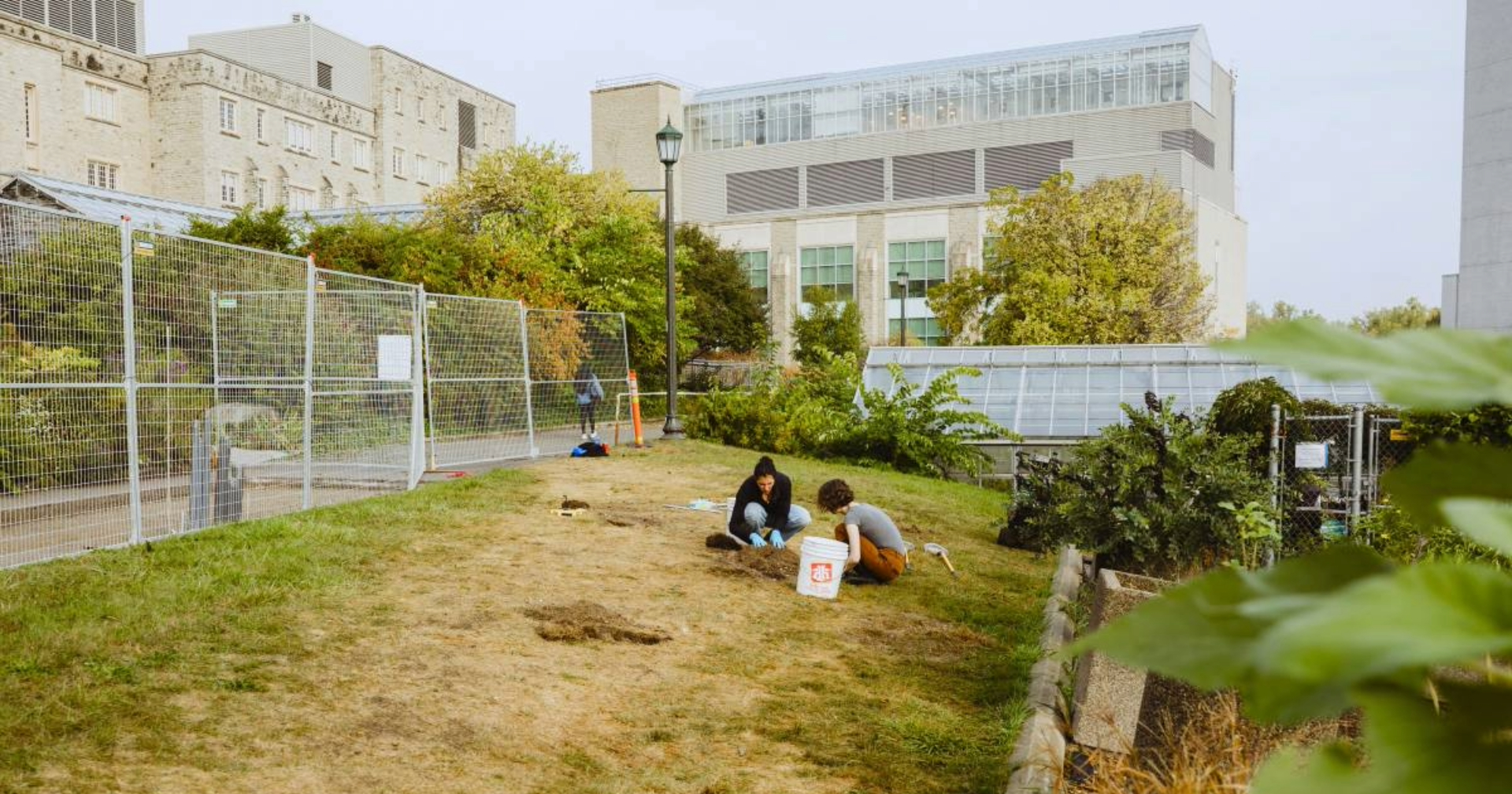Science
Western Researchers Secure $3.4 Million for Innovative Projects

Fourteen researchers from Western University have been awarded a total of $3.4 million from the Canada Foundation for Innovation (CFI) as part of an initiative to tackle pressing challenges in Canada. The funding, provided through the John R. Evans Leaders Fund (JELF), will support innovative projects focused on critical areas such as health care for an aging population, next-generation communication systems, and environmental sustainability amid climate change.
Among the recipients is Geneviève Metson, a professor in the Faculty of Geography and Environment, who has received $267,274 for her project aimed at reducing the ecological risks associated with urban agriculture. This initiative will establish two interconnected laboratories on campus: a conventional lab dedicated to chemical analysis and a living lab designed to study the dynamics of nutrients in urban gardening.
Metson’s research addresses a significant issue: while urban gardens contribute to food security and community cohesion, they can also unintentionally lead to nutrient runoff that contaminates waterways. “The project looks at cities, nutrient cycling and climate change all in one dynamic way,” Metson stated. “We want to work with real people on real problems in real settings. It’s a lot messier, but we’re in a climate emergency now, and we need to experiment, monitor, and course-correct in real-time, learning as we go to find the solutions we need.”
The living lab will feature two garden plots next to Western’s existing community gardens, where student groups and faculty will manage the plots independently. Metson’s team will employ advanced techniques to monitor the flow of essential nutrients, such as nitrogen and phosphorus, at various soil depths. This research is crucial, as excess nitrogen and phosphorus can lead to harmful algal blooms and oxygen-depleted zones in lakes, notably affecting the nearby Great Lakes.
“The nutrients in recycled materials, like manure or compost, can be leached or run off, which poses challenges despite good intentions,” Metson explained. “The nutrient ratios in these materials do not always align with plant needs, leading to over-application and increased runoff.”
Metson’s previous studies in Sweden revealed that the majority of nutrient losses occur not during the active gardening season but during winter and early spring, particularly during freeze-thaw cycles. Her team will collect data over the next five years to evaluate the impact of climate change on these agricultural systems, allowing for year-round monitoring and rapid responses to significant weather events.
“The data will help us create best management practices to limit the losses of essential nutrients,” Metson added. Beyond the immediate goals, she envisions the research informing nutrient management in various urban green spaces while also training students for future sustainability initiatives.
The interdisciplinary nature of the project is important, according to Metson, who also aims to integrate art into the science. She has involved visual arts PhD student Danielle Petti to document the living lab process and is seeking artists to create a mural for the site. An exhibition showcasing their collaborative efforts is planned for September 2026 at Cohen Commons.
Other projects funded through the JELF at Western University include:
– **Robyn Klein**, Schulich School of Medicine & Dentistry: $800,000 to study the effects of emerging RNA viruses on brain function, including those linked to memory issues.
– **David Seminowicz**, Schulich Medicine & Dentistry: $260,549 for establishing a pain research suite aimed at understanding chronic pain mechanisms.
– **Angela Roberts**, Faculty of Health Sciences: $178,085 to develop technology-based communication tools for older adults with dementia.
The diverse range of funded projects underscores the commitment to fostering innovative solutions across various fields, addressing not only the immediate needs of Canadians but also paving the way for future research and collaboration.
-

 Science3 months ago
Science3 months agoToyoake City Proposes Daily Two-Hour Smartphone Use Limit
-

 Health4 months ago
Health4 months agoB.C. Review Reveals Urgent Need for Rare-Disease Drug Reforms
-

 Top Stories4 months ago
Top Stories4 months agoPedestrian Fatally Injured in Esquimalt Collision on August 14
-

 Technology3 months ago
Technology3 months agoDark Adventure Game “Bye Sweet Carole” Set for October Release
-

 World3 months ago
World3 months agoJimmy Lai’s Defense Challenges Charges Under National Security Law
-

 Lifestyle4 months ago
Lifestyle4 months agoVictoria’s Pop-Up Shop Shines Light on B.C.’s Wolf Cull
-

 Technology3 months ago
Technology3 months agoKonami Revives Iconic Metal Gear Solid Delta Ahead of Release
-

 Technology3 months ago
Technology3 months agoApple Expands Self-Service Repair Program to Canada
-

 Technology3 months ago
Technology3 months agoSnapmaker U1 Color 3D Printer Redefines Speed and Sustainability
-

 Technology3 months ago
Technology3 months agoAION Folding Knife: Redefining EDC Design with Premium Materials
-

 Technology4 months ago
Technology4 months agoSolve Today’s Wordle Challenge: Hints and Answer for August 19
-

 Business4 months ago
Business4 months agoGordon Murray Automotive Unveils S1 LM and Le Mans GTR at Monterey









